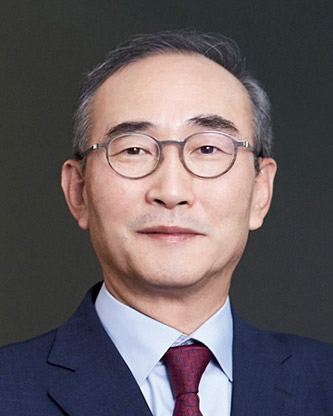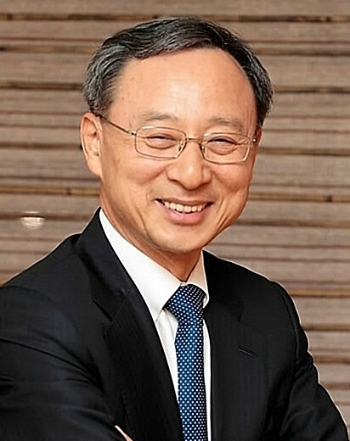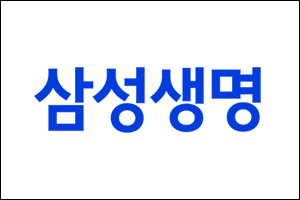
Kim Young-shub, CEO of KT / photo = KT
According to industry sources on the 22nd, a list of 15 top business leaders who will join the business delegation for the Korea–U.S. summit to be held in Washington, D.C., on the 25th (local time) was released. Kim Young-shub was not included.
On the 4th, KT failed to make the final cut among the five elite teams selected for the government-led “Independent AI Foundation Model Project.” As a result, KT became the only one among the three major domestic telecom operators not to participate in the project. In that initiative, SK Telecom was chosen as a lead organization and selected as an elite team, while LG Uplus is participating as a member of the consortium led by the LG AI Research Institute.
This means KT has been excluded from major national decision-making or official selection processes since the Lee administration took office.
Commenting on this, a KT official said, “Most of the companies in the U.S.-bound business delegation are those engaged in key sectors with the United States, such as shipbuilding, defense, and semiconductors,” adding, “Since KT does not have independent business operations in the U.S., there is no compelling reason for us to join the delegation.”
Still, some in the business community suggest that KT may once again be exposed to governance risks in connection with the change of administration.

Hwang Chang-gyu, former CEO of KT. / Photo = KT
Historically, leadership changes at KT have tended to coincide with changes in government. In fact, since its privatization in 2002, four of KT’s CEOs either failed to secure a second term or stepped down before completing their terms.
Kim Young-shub was appointed in late August 2023 during the Yoon Suk-yeol administration. With the change to the Lee Jae-myung administration, some assess that Kim’s prospects for a second term have become shaky.
However, others caution against drawing a definitive conclusion about his reappointment. There is precedent: former KT CEO Hwang Chang-gyu successfully secured a second term in early 2017.
Hwang, first appointed in 2014, completed his initial three-year term through 2017. He then won reappointment in 2017 and served a total of six years through 2020. Although he was embroiled in multiple controversies, including involvement in the Park Geun-hye–Choi Soon-sil scandal, he was also the first CEO since KT’s privatization to complete his full reappointment term.
What enabled Hwang’s reappointment were tangible performance improvements and achievements in new businesses such as 5G, which boosted the assessment of his prospects for another term.
While the AI business appeared to stall due to the setback in the government project, KT plans to continue its transformation into an AICT (AI information and communications technology) company by simultaneously advancing development of its proprietary large language model “Mid:eum” and its strategic partnership with Microsoft (MS).
An industry source said, “It’s clear that Kim Young-shub’s continued exclusion from government events marks a point where his chances of reappointment are weakening,” but added, “That said, former CEO Hwang Chang-gyu secured reappointment despite political risks and completed his full term, so it would be premature to make a definitive judgment that his reappointment is off the table or unlikely.”
Jeong Chaeyun (chaeyun@fntimes.com)



























![[DCM] LX하우시스, 비건축부문 선방...사업포트폴리오 파워 입증](https://cfnimage.commutil.kr/phpwas/restmb_setimgmake.php?pp=006&w=69&h=45&m=5&simg=2026012216215009465a837df64942115218260.jpg&nmt=18)




![[프로필] 장민영 기업은행장, 생산적금융 '적임' 자본시장 전문가 [2026 금융공기업 CEO 인사]](https://cfnimage.commutil.kr/phpwas/restmb_setimgmake.php?pp=006&w=69&h=45&m=5&simg=2026012315011700719c1c16452b012411124362.jpg&nmt=18)
![[DCM] 롯데쇼핑, 강도 높은 구조조정...투자 효율성 제고 절실](https://cfnimage.commutil.kr/phpwas/restmb_setimgmake.php?pp=006&w=69&h=45&m=5&simg=2026012213330402565a837df64942115218260.jpg&nmt=18)
![[DCM] 10년물 회사채 2300억 몰렸다…LG유플러스, 통신 본업이 만든 신뢰](https://cfnimage.commutil.kr/phpwas/restmb_setimgmake.php?pp=006&w=69&h=45&m=5&simg=20260123111549027717fd637f543112168227135.jpg&nmt=18)












![[카드뉴스] 하이퍼 인플레이션, 왜 월급이 종잇조각이 될까?](https://cfnimage.commutil.kr/phpwas/restmb_setimgmake.php?pp=006&w=298&h=298&m=1&simg=202601141153149784de68fcbb3512411124362_0.jpg&nmt=18)
![[카드뉴스] 주식·채권·코인까지 다 오른다, 에브리싱 랠리란 무엇일까?](https://cfnimage.commutil.kr/phpwas/restmb_setimgmake.php?pp=006&w=298&h=298&m=1&simg=202601071630263763de68fcbb3512411124362_0.jpg&nmt=18)
![[카드뉴스] “이거 모르고 지나치면 손해입니다… 2025 연말정산 핵심 정리”](https://cfnimage.commutil.kr/phpwas/restmb_setimgmake.php?pp=006&w=298&h=298&m=1&simg=202601061649137526de68fcbb3512411124362_0.jpg&nmt=18)
![[카드뉴스] KT&G, 제조 부문 명장 선발, 기술 리더 중심 본원적 경쟁력 강화](https://cfnimage.commutil.kr/phpwas/restmb_setimgmake.php?pp=006&w=298&h=298&m=1&simg=202509241142445913de68fcbb3512411124362_0.png&nmt=18)
![[카드뉴스] KT&G ‘Global Jr. Committee’, 조직문화 혁신 방안 제언](https://cfnimage.commutil.kr/phpwas/restmb_setimgmake.php?pp=006&w=298&h=298&m=1&simg=202503261121571288de68fcbb3512411124362_0.png&nmt=18)
![[신간] 고수의 M&A 바이블](https://cfnimage.commutil.kr/phpwas/restmb_setimgmake.php?pp=006&w=81&h=123&m=5&simg=2025091008414900330f8caa4a5ce12411124362.jpg&nmt=18)
![[신간] 리빌딩 코리아 - 피크 코리아 극복을 위한 생산성 주도 성장 전략](https://cfnimage.commutil.kr/phpwas/restmb_setimgmake.php?pp=006&w=81&h=123&m=5&simg=2025032814555807705f8caa4a5ce12411124362.jpg&nmt=18)
![[서평] 추세 매매의 대가들...추세추종 투자전략의 대가 14인 인터뷰](https://cfnimage.commutil.kr/phpwas/restmb_setimgmake.php?pp=006&w=81&h=123&m=5&simg=2023102410444004986c1c16452b0175114235199.jpg&nmt=18)

![[신간] 이게 화낼 일인가?](https://cfnimage.commutil.kr/phpwas/restmb_setimgmake.php?pp=006&w=81&h=123&m=5&simg=2026010610254801367f8caa4a5ce12411124362.jpg&nmt=18)
![[신간] 조금 느려도 괜찮아...느림 속에서 발견한 마음의 빛깔](https://cfnimage.commutil.kr/phpwas/restmb_setimgmake.php?pp=006&w=81&h=123&m=5&simg=20251105082239062852a735e27af12411124362.jpg&nmt=18)

![[AD] 현대차, 글로벌 안전평가 최고등급 달성 기념 EV 특별 프로모션](https://cfnimage.commutil.kr/phpwas/restmb_setimgmake.php?pp=006&w=89&h=45&m=1&simg=20260106160647050337492587736121125197123.jpg&nmt=18)
![[AD] 현대차 ‘모베드’, CES 2026 로보틱스 부문 최고혁신상 수상](https://cfnimage.commutil.kr/phpwas/restmb_setimgmake.php?pp=006&w=89&h=45&m=1&simg=20260105103413003717492587736121125197123.jpg&nmt=18)
![[AD] 기아 ‘PV5’, 최대 적재중량 1회 충전 693km 주행 기네스 신기록](https://cfnimage.commutil.kr/phpwas/restmb_setimgmake.php?pp=006&w=89&h=45&m=1&simg=20251105115215067287492587736121125197123.jpg&nmt=18)
![[카드뉴스] KT&G, 제조 부문 명장 선발, 기술 리더 중심 본원적 경쟁력 강화](https://cfnimage.commutil.kr/phpwas/restmb_setimgmake.php?pp=006&w=89&h=45&m=1&simg=202509241142445913de68fcbb3512411124362_0.png&nmt=18)
![[AD]‘황금연휴에 즐기세요’ 기아, ‘미리 추석 페스타’ 이벤트 실시](https://cfnimage.commutil.kr/phpwas/restmb_setimgmake.php?pp=006&w=89&h=45&m=1&simg=20250903093618029117492587736121166140186.jpg&nmt=18)




